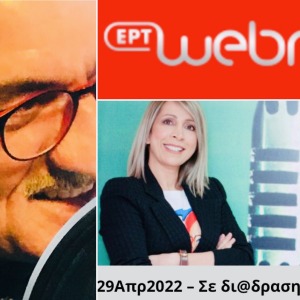Recently, a large international corporation posted a job advert. The recruitment task for the final two candidates was for each to talk in favour of the other. In other words, they were asked to sell the skills of their rival, convincing the prospective employer that their rival was more suited to the role than themselves. This clearly illustrates that the job market is changing and becoming more complex in terms of communication. What is now required is the development of soft skills.
The soft skills that future job market candidates need to develop include:
- Critical thinking
The ability to discern underlying meaning and significance in everything expressed in writing or verbally in a meeting. - Social intelligence
The ability to connect with others in a meaningful and direct way so as to produce desired reactions, interactions and collaborations. - Innovative and adaptive thinking
The ability to think and suggest solutions that go beyond the established approach in a particular field. - Interculturalism
The ability to work closely with any person, no matter their origin. - Computational thinking
The ability to translate abstract ideas into data and useful information and the ability to understand databases and algorithms independently of academic background. - Training in new media
The ability to use technological tools and to keep knowledge of them up-to-date. - Ιnterdisciplinarity
The ability to understand the use of certain concepts in different scientific disciplines and professional fields. - Design skills
The ability to create what is not readily available. - Cognitive load management
The ability to identify and filter information based on prioritization, thereby maximising the value of cognitive load. - Virtual collaboration
Familiarity with the conditions, software and necessary tools for virtual collaboration, as we will be seeking work wherever it exists in the future.
Furthermore, there are three fundamental technical skills that the candidate needs to acquire for the international job market and the international academic community:
- Cost centre intelligence
The employee needs to understand that they themselves are a cost centre for the business, generating expenses and profits. Thus, the employee should familiarise themselves with the definition of productivity, which is usually incorrectly defined based on emotion. True productivity is a technical term, a fraction, a division that refers to the cost of an employee against his performance in the business. If they can show a prospective employer that they are familiar with this concept, then they are well on the way to making a great first impression. - The employer as a client
The second technical skill that the candidate needs to develop, mainly in terms of communication and conduct, is to learn to think of the employer as their client. The relationship between the supplier and client does not differ from the relationship between the employer and employee, because in both cases, someone provides a service for a fee. Unfortunately, employees are not accustomed to perceiving the employer as a client, something that would allow the creation of a new culture in this relationship and would work productively in favour of both. - What’s In Me For You
Every employee needs to decode, list and successfully sell their competitive advantages to their employer/client.
These three technical skills have been developed, taught and enriched through ROIEDU Global Skills, the introductory course of the αriston Pioneers’ League. This community is comprised of young candidates looking to enter the global job market and executives striving to acquire an international career profile.
In order to be deemed desirable by foreign universities and international corporations, it is no longer sufficient just to hold a university degree or to have excellent knowledge of a foreign language. Further qualifications are needed that cannot be demonstrated with degrees and certificates, but rather with work experience or in practice during a probationary period in a company. Based on this concept, the Common European Framework of Reference for Education has been conceived, as well as the establishment of the Europass CV template. Today, most companies recruiting international candidates work exclusively with Europass, they do not accept certificates at face value, and they expect a candidate to demonstrate the skills that have been stated in their CV, during a probationary period.
It is becoming clear, therefore, that the accreditation of knowledge is necessary through a comprehensive academic and educational system. However, the system itself must also direct the student and candidate to use their cognitive load, with a view to acquiring skills that are relevant to the reality of the business world.



